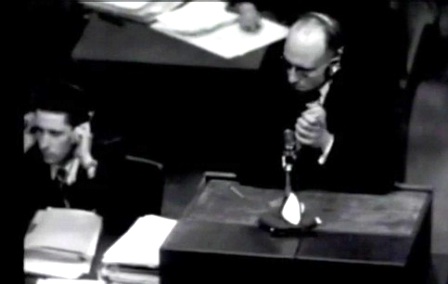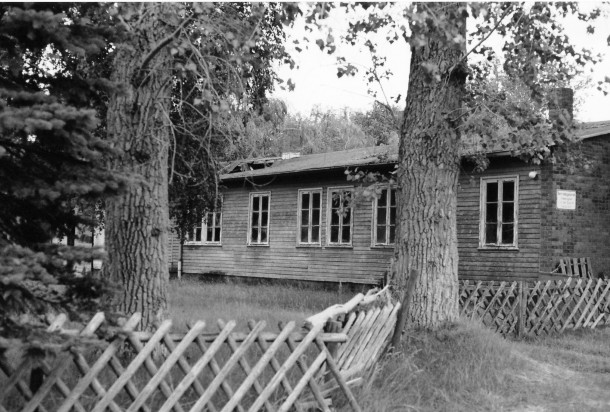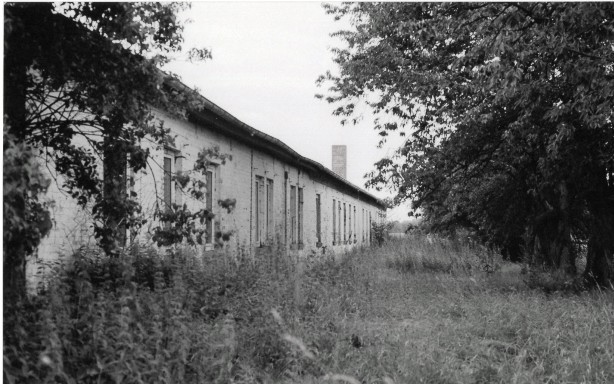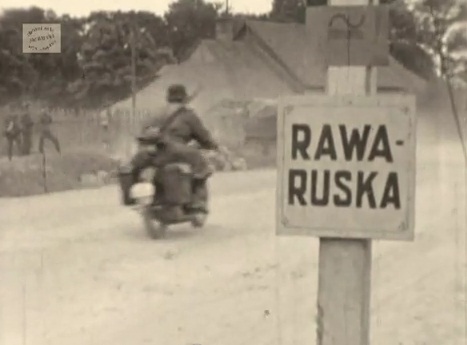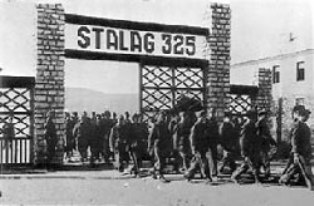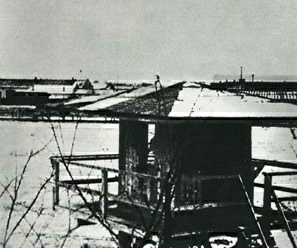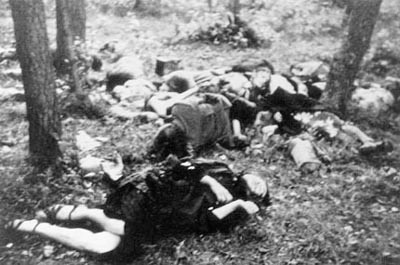Holocaust Education & Archive Research Team |
|
Trials Introduction to the Holocaust Trials
Trials
Interrogations & Testimonies
The IMT Series Nazi Justice
| |||
International Military Tribunal Series Nuremberg War Crimes Trials IMT V 240 Paul Roser
Selected Extracts - January 1946 [Photos added to enhance the text]
THE PRESIDENT: What is your name? Roser: Roser, Paul
M. Debost: You were born on the 8 May 1903, you are of French nationality?
Roser: I was born of French parents
M. Debost: You were a prisoner of war?
Roser: Yes
M. Debost: You were taken prisoner in battle?
Roser: Yes I was
M. Debost: In what year?
Roser:: 14 June 1940
M. Debost: You sought to escape?
Roser:: Yes, several times
M. Debost: How many times?
Roser:: Five times
M. Debost: Five times, you were transferred finally to a disciplinary camp?
Roser:: Yes
M. Debost: Will you indicate the regime of such a camp? Will you indicate your rank and the treatment which French people of your rank in those disciplinary camps had to submit to and for what reasons?
Roser:: Very well, I was an “aspirant,” a rank which in France, is between a first sergeant and a second lieutenant. I was in several disciplinary camps. The first was a small camp which the Germans called Stafkommando in Linzburg in Hannover. It was in 1941 there were about thirty of us.
While I was in that camp during the summer of 1941, we attempted to escape. We were recaptured by our guards at the very moment when we were leaving the camp. We were naturally unarmed, the Germans our guards, having recaptured us, attempted to make him reveal the others who had also sought to escape. The man remained silent, the guards hurled themselves upon him, beating him with the butts of their pistols in the face, with bayonets, with the butts of their rifles.
At that moment not wishing to let our comrade be killed, several of us stepped forward and revealed we sought to escape. I then received a beating with bayonets applied to my head and fell into a swoon. When I recovered consciousness one of the Germans was kneeling on my leg and was continuing to strike me.
Another one, raising his gun, was seeking to strike my head. I was saved on that occasion through the intervention of my comrades, who threw themselves between the Germans and myself. That night we were beaten for exactly 3 hours with rifle butts, with bayonet blows, and with pistol butts in the face. I lost consciousness three times.
The following day we were taken to work, nevertheless. We dug trenches for the draining of the marshes. It was very hard sort of work, which started at 6:30 in the morning, to be completed at 6 o’clock at night. We had two stops, each of a half –hour. We had nothing to eat during the day. Soup was given to us, when we came back at night, with a piece of bread, a small sausage or 2 cubic centimetres of margarine, and that was all.
Following our attempted escape, our guards held back from us all the parcels which our families sent to us for a month, we could not write nor could we receive mail.
At the end of three and a half months, in September 1941, we were shipped to the regular Kommando’s. I, personally, was quite ill at that time and I came back to Stalag XB at Sandbostel.
M. Debost: Are you familiar with executions that took place in Oflag XIB?
Roser:: I was familiar with the death of several French or Allied prisoners, specifically at Oflag XI at Grossborn in Pomerania. A French prisoner, Lieutenant Robin, who with some of his comrades – had prepared an escape and for that purpose had dug a tunnel, was killed in the following manner:
The Germans having had information that the tunnel had been prepared, Hauptmann Buchmann, who was a member of the officer staff of the camp, watched with a few German guards for the exit of the would-be escapees. Lieutenant Robin, who was first to emerge, was killed with one shot while obviously he could in no manner attack anyone or defend himself.
Other cases of this type occurred, one of my friends, a French Lieutenant Ledoux, who was sent to Graudenz Fortress where he was subjected to a hard detention regime, saw his best friend, British Lieutenant Anthony Thomson, killed by Hauptfeldwebel Ostreich with one pistol shot in the neck, in their own cell. Lieutenant Thomson had just sought to escape and had been recaptured by the Germans on the airfield. Lieutenant Thomson belonged to the RAF.
I should like to state also that in the camp of Rawa Ruska in Galicia, where I spent 5 months, several of our comrades…………..
M. Debost: Would you tell us why you were at Rawa Ruska?
Roser:: In the course of the winter 1941-2, the Germans wanted to intimidate, first, the non-commissioned officers who were refractory in labour, second those who had sought to escape, and third, the men who were being employed in Kommando’s (labour gangs) and who were caught in the act of performing sabotage.
The Germans warned us that from 1 April 1942 onward all these escapees who were recaptured would be sent to a camp, a special camp called a Straflager at Rawa Ruska in Poland.
It was following another attempt to escape that I was taken to Poland with about two thousand other Frenchmen. I was at Limburg- an –der – Lahm, Stalag XII A, where we were regrouped and placed in railway cars.
We were stripped of our clothes, of our shoes, of all the food which some of us had been able to keep. We were placed in cars, in each of which varied from 53 to 56. The trip lasted 6 days. The cars were open generally for a few minutes in the course of a stop in the countryside. In 6 days we were given soup on 2 occasions only, once at Oppeln, and another at Jaroslau and the stop was not edible. We remained for 36 hours without anything to drink in the course of that trip, as we had no receptacle with us, and it was impossible to get a supply of water.
When we reached Rawa Ruska on 1 June 1942, we found other prisoners, most of them French, who had been there for several weeks – extremely discouraged, with a ration scale much inferior to anything that we had experienced until then, and no international Red Cross or family parcel for anyone.
At that time there were about twelve to thirteen thousand in that camp. There was for that number one single faucet which supplied, for several hours a day, un-drinkable water. This situation lasted until the visit of two Swiss doctors, who came to the camp in September, I think. The billets consisted of 4 barracks, where rooms contained as many as 600 men. We were stacked in tiers along the walls, 3 rows of them, 30 to 40 centimetres for each of us.
During our stay in Rawa Ruska there were many attempts at escape, more than five hundred in 6 months. Several of our comrades were killed at the time when a guard noticed them. In spite of the sadness of such occurrences, no one of us contested the rights of our guards in such cases, but several were murdered.
In particular, on 12 August 1942, in the Tarnopol Kommando, a soldier Lavesque, was found bearing evidence of several shots and several large wounds caused by bayonets.
On the 14th of August, in the Verciniec Kommando, 93 Frenchmen, having succeeded in digging a tunnel, escaped. The following morning three of them, Conan, Van den Boosch and Poutrelle were caught by German soldiers, who were searching for them. Two of them were sleeping, the third Poutrelle, was not asleep. The Germans, a corporal and two enlisted men, verified the identity of the three Frenchmen. Very calmly they told them, “Now we are obliged to kill you.”
The three wretched men spoke of their families, begged for mercy, the German corporal gave the following reply, which we heard only too often; “Befehl ist Befehl.” (An order is an order), and they shot down immediately two of the French prisoners, Van den Boosch and Conan. Poutrelle was left like a madman and by sheer luck was not caught again. But he was captured a few days later in the region of Krakow. He was then brought back to Rawa Ruska proper, where we saw him in a condition close to madness.
On the 14th of August, once again in the Stryj Kommando, a team of about twenty prisoners accompanied by several guards, were on their way to work ………
M. Debost: Excuse me, you are talking about French prisoners of war?
Roser:: Yes French prisoners of war.
Going along a wood, the German non-commissioned officer, who for sometime had been annoying two of them, Pierrel and Ondiviella, directed them into the woods. A few moments later the others heard shots, Pierrel and Ondiviella had just been killed.
On 20 September 1942, at Stryj once again, a Kommando was at work under the supervision of German soldiers and German civilian foremen. One of the Frenchmen succeeded in escaping. Without waiting, the German non-commissioned officers selected two men, if my memory is correct, Saladin and Duboeuf, and shot them on the spot.
Incidents of this type occurred in other circumstances, the list of them would be long indeed.
M. Debost: Can you speak of the conditions under which the refractory non- commissioned officers who were with you at camp Rawa Ruska lived?
Roser: The non-commissioned officers who refused to work were grouped together in one section of the camp, in two large stables which served as billets. They were subjected to a regime of most severe repression; frequent roll calls for assembly, lying down and standing-up exercises, which after a while leaves one quite exhausted.
One day Sergeant Corbihan having refused Captain Fournier- a German captain with a French name, to take a tool to work with, the German captain made a motion and one of the German soldiers with him, ran Corbihan through with his bayonet. Corbihan by miracle escaped death.
M. Debost: How many of you disappeared? Roser:: At Rawa Ruska, in the 5 months that I spent there, we buried 60 of our comrades who had died from disease or had been killed in attempted escapes. But so far, 100 of those who were with us and sought to escape have not been found.
M. Debost: Is this all that you have witnessed?
Roser:: No, I should say that our stay at the punishment camp, Rawa Ruska, involved one thing more awful than anything else we prisoners saw and suffered. We were horrified by what we knew was taking place all about us.
The Germans had transformed the area of Lvov- Rawa Ruska into a kind of immense ghetto. Into that area, where the Jews were already quite numerous, had been brought the Jews from all the countries of Europe.
Every day for 5 months, except for an interruption of about six weeks in August and September 1942, we saw passing about 150 meters from our camp, one, two, and sometimes three convoys, made up of freight cars, in which there were crowded men, women and children. One day a voice coming from one of these cars shouted, “I am from Paris, we are on our way to the slaughter.”
Quite frequently, comrades who went outside the camp to go to work found corpses along the railway track. We knew in a vague sort of way at that time that these trains stopped at Belzec, which was located about 17 kilometres from our camp; and at that point they executed these wretched people, by what means I do not know.
One night in July 1942 we heard shots of sub-machine guns, throughout the entire night and the moans of women and children. The following morning bands of German soldiers were going through the fields of rye on the very edge of our camp, their bayonets pointed downwards, seeking people hiding in the fields.
Those of our comrades who went out that day to go to their work told us that they saw corpses everywhere in the town, in the gutters, in the barns, in the houses. Later some of our guards, who had participated in this operation, quite good – humouredly explained to us that 2,000 Jews had been killed that night under the pretext that two SS men had been murdered in the region.
Later on, in 1943, during the first week of June, there occurred a pogrom which in Lvov caused the death of 30,000 Jews. I was not personally in Lvov, but several French military doctors, Major Guiguet and Lieutenant Levin of the French Medical Corps, described this scene to me.
M. Debost: Mr Roser:, this morning you finished the description of the conditions under which you witnessed the pogrom of Rawa Ruska and you wanted to give us some details on another pogrom. You told us a German soldier who had taken part in it, made a statement to you, which you wanted to relate to us. Is that right?
Roser:: At the end of 1942 I was taken to Germany, and I together with a French doctor, had the opportunity of meeting the chauffeur of the German physician who was head of the infirmary where I was at that time. This soldier whose name I have forgotten, said to me as follows:
“In Poland in a town the name of which I have forgotten, a sergeant from our regiment went with a Jewess. A few hours later he was found dead. Then said the German soldier, “my battalion was called out, half of it cordoned off the ghetto, and the other half – two companies, to one of which I belonged, forced its way into the houses and threw out of the windows pell-mell, the furniture and the inhabitants.”
The German soldier finished his story by saying, “Poor fellow, it was terrible, horrible.” We asked him then, “How could you do such a thing?” He gave us the fatalistic reply, “Orders are orders.”
Sources:
US National Archives IMT Trial Records - Wiener Library London Holocaust Historical Society Hans Zimmerman – Sandbostel Camp Bulletin de la Fondation pour la Me´moire de la De´portation
Copyright. H.C Benedictine H.E.A.R.T 2011
|
